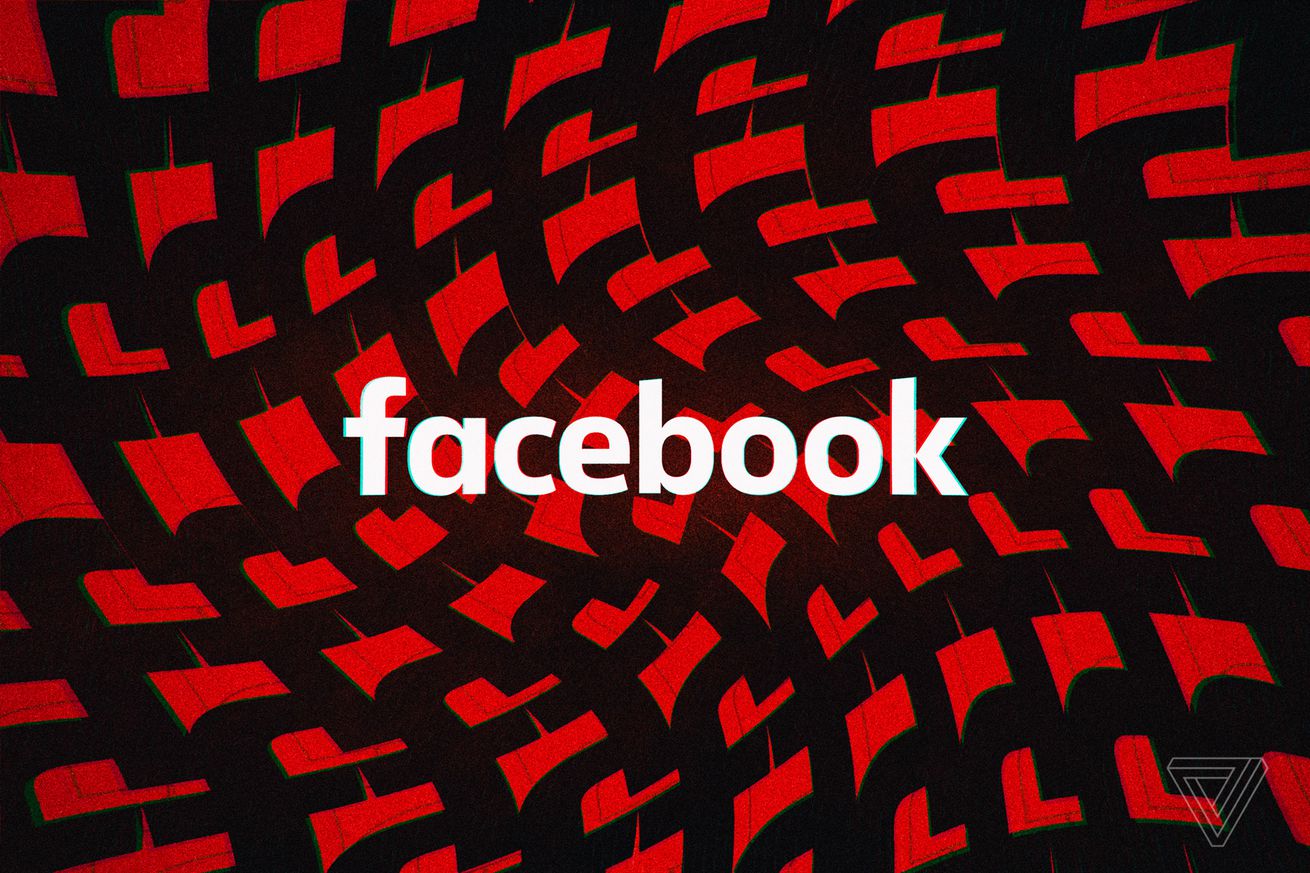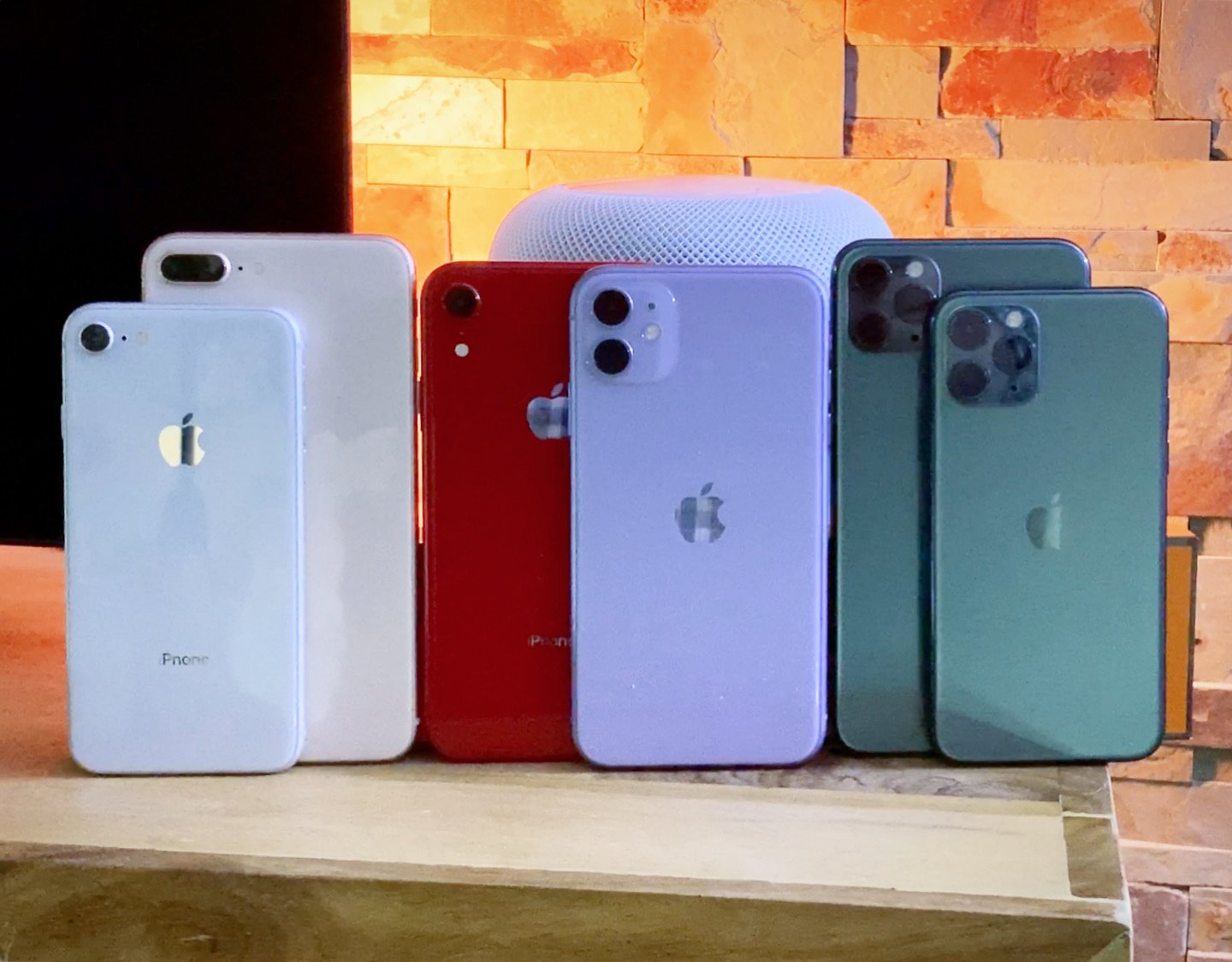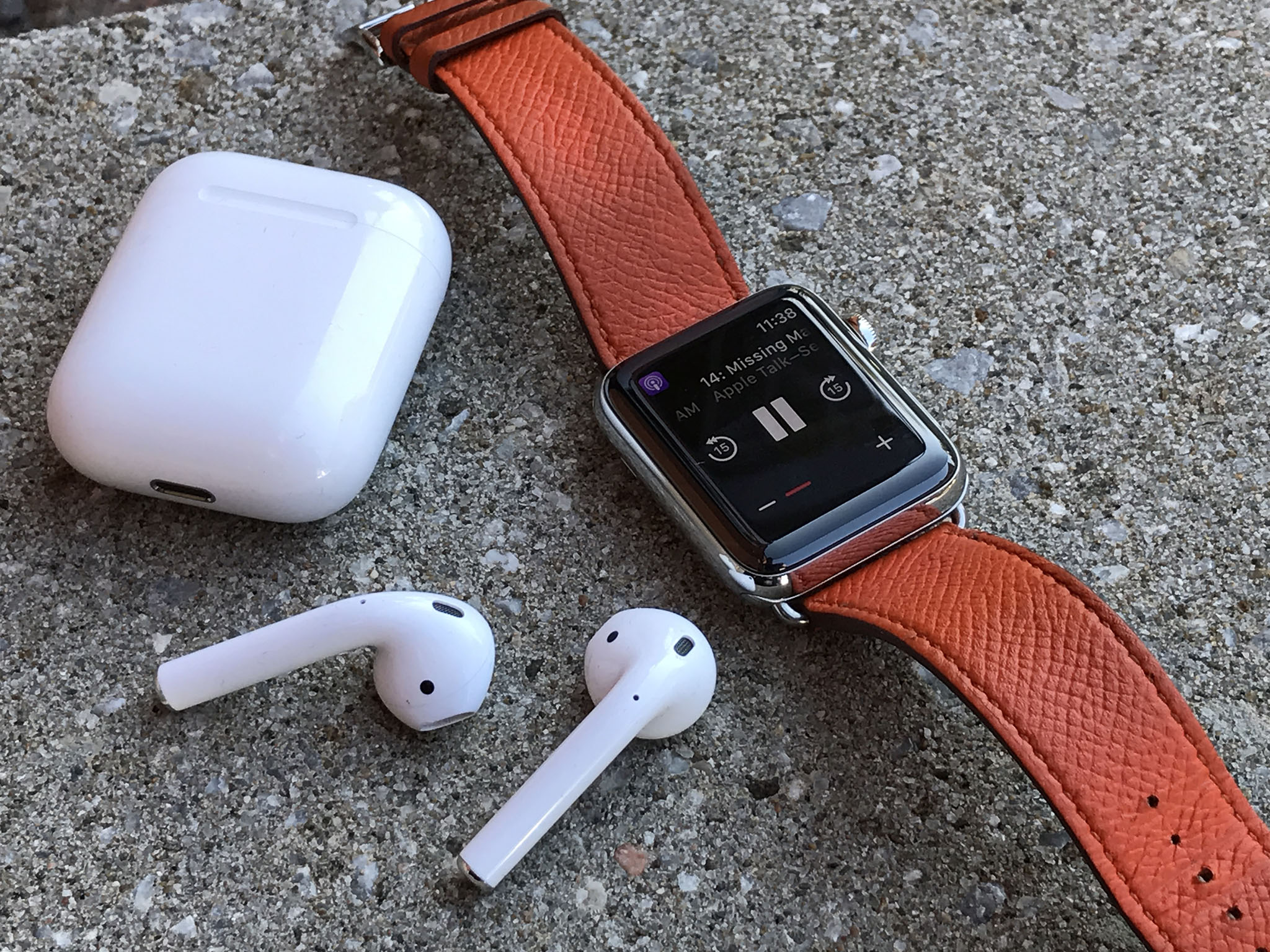
Total Pageviews
Thursday, 30 January 2020
Mark Zuckerberg doesn't need to be 'liked'

Apple Q1 2020: iPhone powers the ecosystem
The iPhone 11 is going to be so boring. So iterative. A real yawner. A letdown. You don't need it. Totally. Completely. Must skip. Facepalm emoji dash thumbnail.
That was not an uncommon narrative last year when iPhone 11 rumors started making the rounds. Hell, even once it was announced.
Now, just four months later, Apple has released its first quarter, 2020 financial results and, well…
OK Doomers.
Apple Q1 2020
Now, you all know how much I don't hate to say I told them so. The misinformers. Not the ones who are just wrong. We're all sometimes wrong. We learn we grow. No. The deliberate ones. The ones who do it on purpose to manipulate markets or just manipulate their audiences.
Because they cause real damage. Not to Apple. Apple is enormous. Apple can ride it. But to the people and audiences who put their trust in them, and then miss out, get screwed over, and lose. Because there's a real-world cost. There's always a real-world cost. Hot takes, they burn.
That's why I've done a bunch of videos about precisely how and why all of that misinformation was so misinformed. And I'm going to keep on doing just that and, when the results come in, I'm going to analyze them as well. To keep everyone honest. Especially me.
iPhone
So, Q1 2020, Apple's first big holiday quarter of the new decade, and iPhone revenue in total was up 8% year-over-year, which given how mature and saturated the phone market is, shows that there's still room for some small surges when the product and positioning it right.
Sadly, Apple doesn't report unit sales anymore, because it doesn't help Apple to report them anymore in an industry where few if any other vendors ever have.
And, lest you think it was some common, bargain iPhone that did all that heavy lifting, Tim Cook did say that iPhone 11 was, in fact, the top-selling model every week of the holiday quarter, with the iPhone 11 Pro and iPhone 11 Pro Max coming in right behind.
Overall gross product margins were 34%, down from the 38 or 39% they'd been from the end of the Jobs era until far more recently. Which, yeah, once again shows that while prices might be up under Tim Cook, its because Apple is spending more to make devices, not just charging more for them. In fact, now Apple is charging less, and eating more of the difference.
Apple listened, some will say. The market wanted the iPhone to be affordable again. And they're right. I think the price drop from the $749 iPhone XR to the $699 iPhone 11 was certainly a big part of it, especially psychologically. That would explain the iPhone 11's success. But what explains the iPhone 11 Pros? See, I think what the market actually wanted most was respect.
Apple's mistake wasn't selling a $999 iPhone. It was selling the iPhone for $999 and making the iPhone 8 and then the iPhone X look and feel discounted, less than, worse. And nobody likes to feel that way about something they're buying. It makes them feel that way about themselves.
I made a video on the need for this long before it happened, but that was the real correction Apple made. Putting the iPhone 11 — the iPhone, back in the sweet spot, and positioning the $999 — the pro — as a premium option on top of it, everyone felt great again.
Great enough to push the iPhone 11 to new revenue records in the Americas, Europe, Asia Pacific, and even kickstart solid growth again in China.
Where, despite a trade war, and facing incredibly strong competition from local vendors like Huawei, the iPhone managed to rebound.
Which, when you think that this time last year, Apple and Tim Cook were coming off a letter to investors revising earnings for only the second time in history, primarily due to the iPhone and China, shows a fairly damn remarkable navigation of incredibly complex market conditions by a company and CEO so clearly, so always doomed.
Apple is also reportedly seeing massive growth in India, which is a market it's struggled in for ages. The reason? iPhone 11 and also iPhone XR. Yeah, the disappointing iPhone XR.
Taken together, it's almost impossible to believe the major business publications still haven't bothered to fix that weird glitch in their auto-correct systems that keeps inserting the words declining, lackluster, flagging, stalling, faltering, slumping, slowing, waning, sputtering, down-turning, business damaging before the word iPhone in their coverage, in the months and months of whatever malpractice passes for journalism there these days.
Now, you'd think being so wrong so always would motivate all the pundits to pause, to reassess to grow. But… we're already seeing the same thing with the rumored iPhone 9 this spring and expected iPhone 12 this fall.
Not just that they'll be boring, because, of course, they'll be, but because we're reaching peak phone and simply don't need anything more or better.
But there are a couple of important things to remember there as well.
First of all, unlike most of the tech pundits, real humans simply don't buy new iPhones every year. People getting the iPhone 11 weren't coming from iPhone XR or XS. They were coming from iPhone 6 or iPhone 6s. And, apparently, taking advantage of trade-in programs twice as much as before.
Later this year, people getting the iPhone 12 won't be coming from iPhone 11, but from iPhone 6s and 7.
And, every year, when people upgrade, Apple wants them to get the best possible iPhone they can get. One that's not just great when they get it, but stays great, able to get software updates and run the latest apps, until however long it takes them to want to upgrade again. Even if that's iPhone 15. Which, yes, should also be the best possible iPhone they can get then.
There's a ton of work that needs to be done on software and services and interfaces and voice assistants, and all of that, absolutely.
But that work is going to need, is going to depend on, the same amount of work being put into ever-better hardware. Better chipsets. Better radios. Better battery tech. Better displays. Better devices that are easier to carry and to use.
It all goes hand-in-hand, because the phones we have now, tiny tech miracles that they are, still fail us in so many ways, so many days, that they still need to be pushed forward. Hard.
We may well have reached peak pundit but we by no means have reached peak iPhone.
Which brings us to the equal and opposite concern that's be re-surfacing recently — that for all its doom-ed-ness, Apple is still way too dependent on iPhone revenue.
It's a variation on the same theme. You're not making enough money until you're making all of it, and then you're making way too much.
Ecosystem
Apple reported services revenue of 12.7 billion, another record high, but growth of 17%, down ever so slightly from the 18% last quarter. While the iPad and Mac were down, especially the iPad, which is something I'll get into in the near future, wearables were up. Explosively. 44%. And that's with both the AirPods Pro and the Apple Watch Series 3 being constrained throughout the quarter. In other words, Apple couldn't make enough to meet demand.
Two products that were widely mocked and dismissed when they were announced and for years after by many of the same tech-sperts, by a company that's supposedly done nothing of note in the last ten years, especially in the post-Steve Jobs era.
The uptick in iPhone sales and downtick in iPad and Mac sales means not-iPhone wasn't able to equal iPhone, but taken together, not-iPhone was still a business better than most in this world.
Especially since the iPhone still feeds so many of Apple's other businesses. About half of the iPad and Mac customers were new to those products. More than 75% of Apple Watch customers were new to that product as well.
People with Samsung or other Android phones still switch to iPhone more than the other way around, and once they switch they start buying more products and services from Apple.
This is a huge challenge, since there's a limited number of people on earth, and as the iPhone customer base grows, the number of upgrade sales will increasingly dwarf new-to-any-phone or switcher sales. But Apple seems to be leaning into that by making devices that last longer, that can be re-sold or handed down longer, and on growing that iPhone platform to be as big as it can be.
Given that Apple announced its installed base of devices is now over 1.5 billion, apparently more than Microsoft at this point, with almost a billion iPhones alone, maybe 2 billion devices total in the next 5 years, all those iPhones create room for a ton of ecosystem growth, both for other devices and services on top of them.
Especially as we go from the age of screens to an age that also includes ambient voice and, Tim Cook's favorite topic recently, augmented reality.
from iMore - The #1 iPhone, iPad, and iPod touch blog https://ift.tt/2U620dF
via IFTTT
117 new emoji coming in 2020 including ninja, bubble tea, and more
Express yourself with a green bell pepper, black cat, or non-binary symbol.
What you need to know
- The 2020 emoji lineup has been announced.
- There are 117 new emoji coming this year.
- There is finally a roller skate emoji.
Every year, the Unicode Consortium votes on and approves a new set of emoji symbols for the year. Emoji 13.0 was just announced today and with it comes a laundry list of 117 new symbols (no laundry list symbol though). These emoji symbols will be coming to most platforms in the second half of 2020. Not every device will have all 117 symbols. Most software developers pick about half from the list to add to their various apps and operating systems.
New symbols range from new facial expressions, like a smiling face with a tear (I feel this way often), to body parts, like an anatomical heart and lungs, to animals, like a black cat, bison, mammoth, beaver, polar bear, and the dodo bird. There are a few new food and drink options, like blueberries, olive, bell pepper, flatbread, tamale, fondue, and bubble tea.
I can't wait to see how people get indignant over what a tamale is supposed to look like.
What's your favorite new emoji for 2020?
from iMore - The #1 iPhone, iPad, and iPod touch blog https://ift.tt/36DNqg0
via IFTTT
Stronger than expected Windows sales contribute to Microsoft's solid Q2 FY20
from Latest news https://ift.tt/38MkcgH
via IFTTT
US DOI halts operations for its entire drone fleet over Chinese cybersecurity concerns
from Latest news https://ift.tt/37Fq8Yu
via IFTTT
NBN retreats from directly signing enterprise customers
from Latest news https://ift.tt/315ap2w
via IFTTT
DOD contractor suffers ransomware infection
from Latest news https://ift.tt/36BVLB7
via IFTTT
CBA invests another $200m to fund Klarna's entry into Australia
from Latest news https://ift.tt/2U80FD6
via IFTTT
Rich countries should invest in LatAm to create AI talent
from Latest news https://ift.tt/2RZMihx
via IFTTT
Facebook pays up $550M for facial recognition privacy lawsuit - CNET
from CNET https://ift.tt/2UdW2Yx
via IFTTT
Coronavirus cases spike to over 7,700, death toll rises: Everything we know - CNET
from CNET https://ift.tt/2u4Z9qX
via IFTTT
Human hearts and brides with mustaches: The best new emojis on the way - CNET
from CNET https://ift.tt/2t5cWx4
via IFTTT
Tesla says China has ordered its Shanghai factory shut down over coronavirus fears
 Xinhua/Ding Ting via Getty Images
Xinhua/Ding Ting via Getty Images
The Chinese government has ordered the shutdown of Tesla’s new factory in Shanghai over coronavirus fears, which will delay the company’s production of the Model 3 there, executives announced in a call with investors. The ramp of the Model 3 production will be delayed by a week and a half and the shutdown may “slightly” impact the company’s profitability in the first quarter of 2020, Tesla finance chief Zach Kirkhorn said.
“At this point we’re expecting a one to one-and-a-half week delay in the ramp of Shanghai built Model 3s due to a government required factory shutdown,” he said on the call.
Tesla began delivering the first cars produced at its Shanghai factory at the end of 2019. The deliveries marked an important milestone for Tesla,...
from The Verge - All Posts https://ift.tt/2GA4Srj
via IFTTT
Facebook to pay $550 million to settle privacy lawsuit over facial recognition tech
 Illustration by Alex Castro / The Verge
Illustration by Alex Castro / The Verge
Facebook says it has agreed to pay $550 million to settle a class-action lawsuit regarding its use of facial recognition technology. The news, reported first this evening by The New York Times, was part of a disclosure the company made as part of its fourth quarter earnings report today.
The case against Facebook has been going on since 2015. The lawsuit alleged that Facebook’s initial version of the its Tag Suggestions tool, which scans a user’s face in photos and offers suggestions about who that person might be, stored biometric data without user consent, violating the Illinois Biometric Information Privacy Act.
In 2018, Facebook began more transparently explaining its...
from The Verge - All Posts https://ift.tt/2RYzSGJ
via IFTTT
Apple must pay $837 million for infringing Wi-Fi patents from Caltech, jury decides
 Illustration by Alex Castro / The Verge
Illustration by Alex Castro / The Verge
Nearly four years after the California Institute of Technology sued Apple and Broadcom for allegedly infringing four of the university’s patents on Wi-Fi data transmission, a federal jury has agreed that the two companies infringed — and has awarded $1.1 billion in damages to Caltech for the infringement, Law360 reports.
Reporting from the courtroom today, Law360 writes that the jury ordered Apple to pay $837 million, with Broadcom owing $270 million. That seems to be based on Caltech’s hypothetical estimate of what it might have been able to negotiate in royalties back in 2010 — if Broadcom and Apple had actually struck a deal with Caltech before they put Broadcom’s Wi-Fi chips into new Apple devices.
Caltech figured that Apple would...
from The Verge - All Posts https://ift.tt/3aTQs3i
via IFTTT
Strange newly discovered aurora looks like glowing green dunes - CNET
from CNET https://ift.tt/36G7crk
via IFTTT
Kwikset's Kevo touch-to-open smart lock is now $90, its lowest price ever - CNET
from CNET https://ift.tt/2tedEIE
via IFTTT
Tesla Model Y is coming to customers ahead of schedule and with extra range - Roadshow
from CNET https://ift.tt/2RGshhn
via IFTTT
2020 Mini Cooper SE Electric delivers EV zip for short money - Roadshow
from CNET https://ift.tt/2RABS9b
via IFTTT
Europe allows Huawei for 5G through security guidelines - CNET
from CNET https://ift.tt/36IAnu9
via IFTTT
Self-driving Waymo minivans will assist UPS with deliveries



